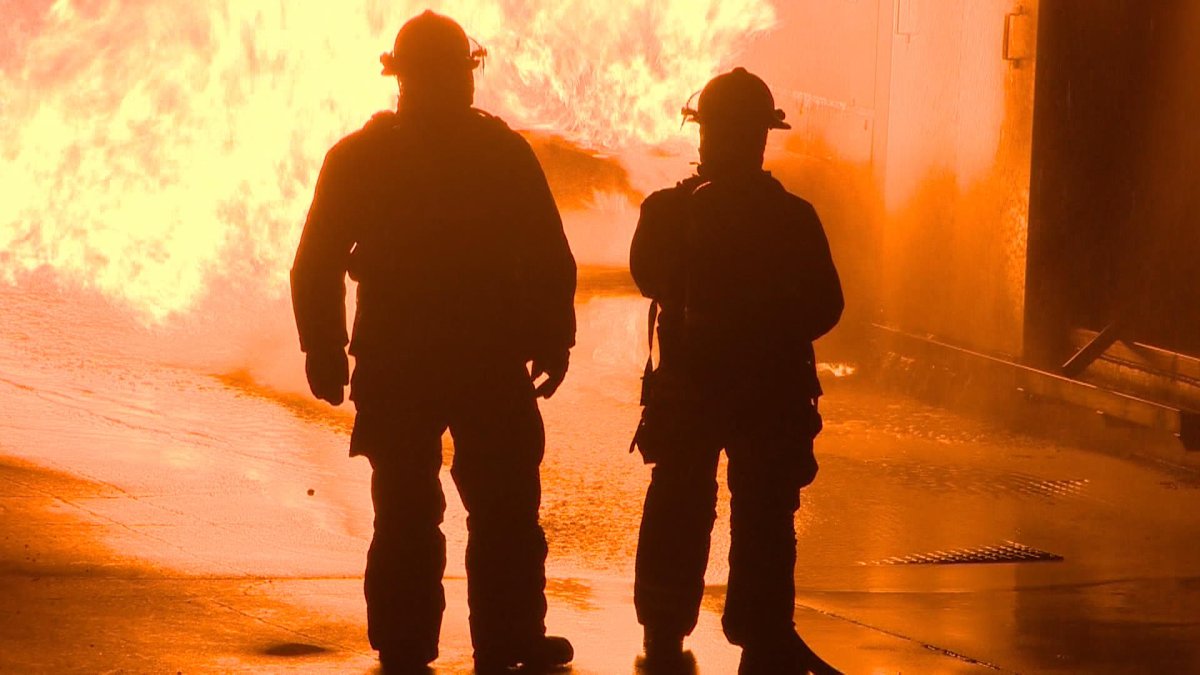James Busch stands atop a hill, overlooking new trainees undertaking a firefighting course. Below, navy sailors have a tall task ahead of them: extinguishing a burning helicopter.

The chopper is a Sikorsky CH-148 Cyclone, but it’s not a real helicopter.
The near-exact replica of the chopper, in use for the training exercise, is equipped with a steel frame and metal seats. The size, shape and doors are the same as the ones used by the military.
The metallic frame is doused with propane and then lit on fire. Surrounding the helicopter is a realistic helicopter pad and ship hull doors representing a ship.
The burns are done during the night to simulate when the helicopter typically flies.
Many of the sailors will use this training for future stints on military ships.
One sailor is Dalton Tucker.

Get breaking National news
“In 2020, I had the privilege of being on the HMCS Fredericton deployment,” he said in an interview with Global News. “There were a couple of bad events during that deployment so it’s good to have training in case anything happens.”
Tucker spent the evening helping pull the giant hose for the trainee ahead of him. His goal is to move into sector command, which runs the team.
After being on the HMCS Fredericton, he said that the simulation is as realistic as it gets.
“The risk is 10-fold,” told Petty Officer First Class senior instructor James Busch “If you don’t have any training, you don’t have any chance of figuring out what to do in a situation, and you’d have no choice but to ditch the helicopter in the ocean.”
Within minutes, the crew knocked down the staged inferno. The crew uses firefighters with hoses on each side. A group also watches over the scene from a nearby tower.
Crews will spend weeks at the facility just outside Halifax to complete the training. It also includes daytime training and other simulations in the event of an emergency.
“We can set it up for different scenarios,” told Busch. “We can put different zones on fire, we can add smoke, we can add casualties; this allows our students to adapt to different scenarios so they can adapt on the field (and hone) their skills.”
Busch said he hopes this training could save a life.









Comments